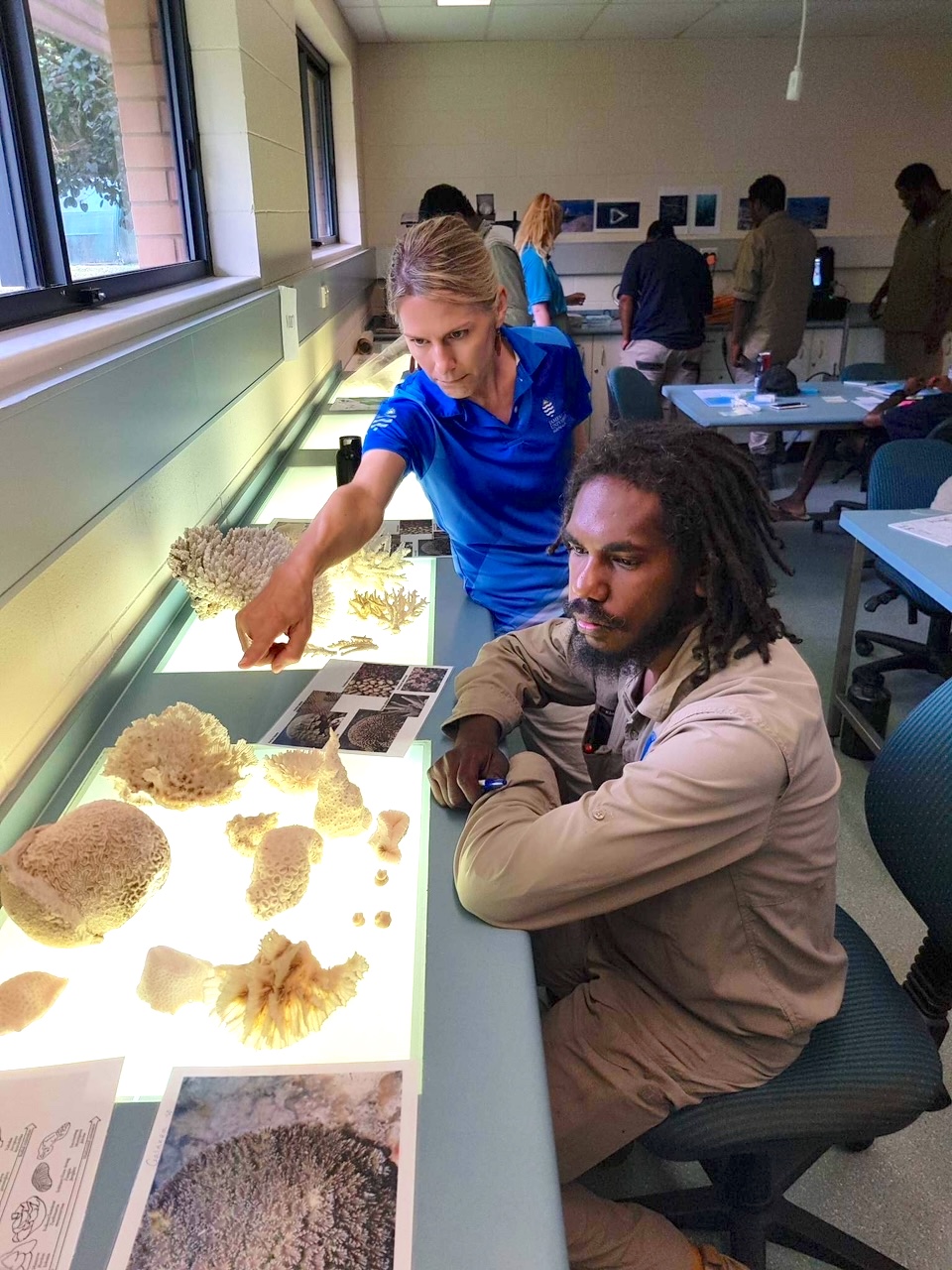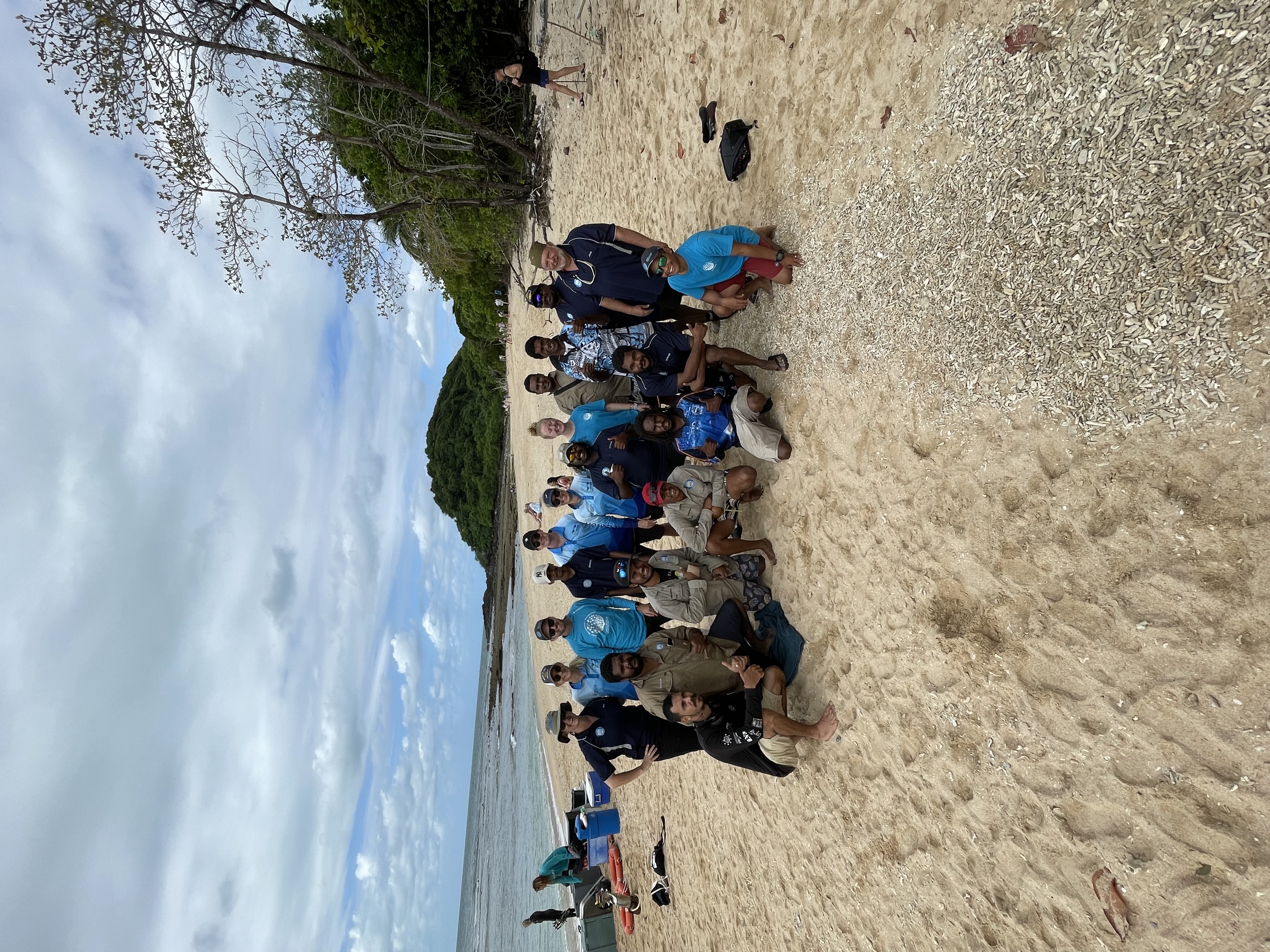GMY Rangers upskill to care for their sea Country




Aims and overview
Gunggandji-Mandingalbay Yindinji (GMY) Peoples’ sea Country includes the Frankland Island Group and numerous reefs within the Great Barrier Reef Marine Park and World Heritage Area. This sea Country is culturally rich, with high biodiversity values, and is home for dugong, turtle, and manta rays. However, GMY want to know more about the sea floor habitats and the deeper habitats between the coast, reefs, and islands in their area. The aim of this project was for GMY People to gain a better understanding of the health of sea Country and its resources, so that others can recognise the importance of sea Country to culture and the long-term health of country for generations to come.
GMY Rangers partnered with TropWATER and the Reef Restoration Foundation to secure a Healing Country grant with the Great Barrier Reef Foundation. The project is developing the capacity of the ranger team to protect, manage and monitor cultural and environmental values within sea Country, and address a critical knowledge gap.
Activities and outcomes
GMY Rangers participated in a Seagrass Habitat knowledge exchange workshop at James Cook University (JCU) to bring together traditional ecological knowledge of GMY sea Country and knowledge from modern science. Rangers learnt how to survey and report on the health of seagrass and identify seagrass species. Rangers then undertook lab work at JCU TropWATER to gain skills in identifying seagrass seeds and removing them from sediment samples collected from East Trinity.
GMY rangers also participated in a Coral Reef knowledge exchange workshop at JCU to learn about coral identification, general reef ecology, coral handling, coral nurseries and coral restoration. Rangers engaged in a Coral Reef building and knowledge sharing workshop on the Frankland Islands, undertaking low tide exploration of coral reefs and other habitats, and training on habitat mapping reefs and running transects to record data.
New partnerships have emerged from this project, opening new opportunities for the rangers. Blue Planet Marine invited two GMY rangers to support the Crown-of-Thorns starfish (COTS) eradication program. By building diving and COTS capacity, rangers will be able to support eradication efforts in GMY sea country in the future. A new partnership with GBR Legacy, to support their Coral Bio Bank program through collection of samples from Sudbury Reef, may lead to GMY Rangers establishing our own bio bank in the future.
Learnings and next steps
GMY’s key learning is the need to develop a Sea Country Management Plan, drawing upon this valuable data to inform key management priorities and outcomes, and developing monitoring plans to protect, manage and monitor key seagrass and coral habitats.


